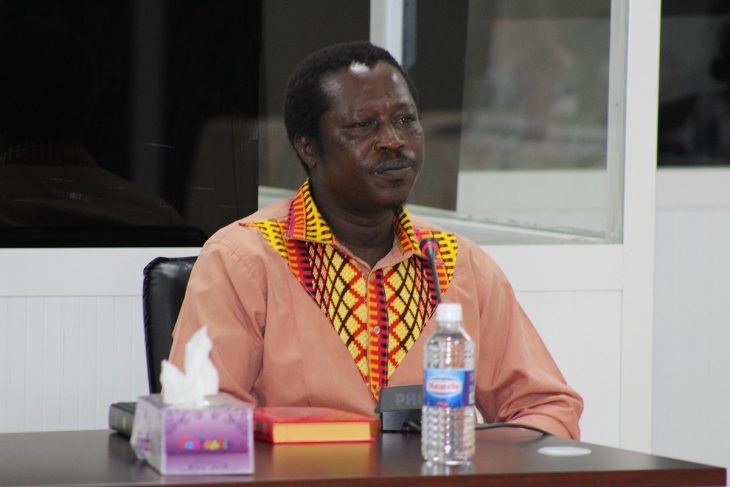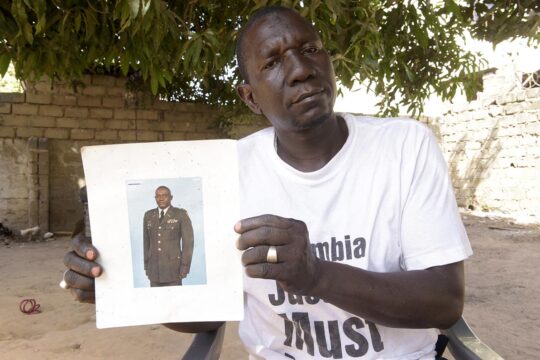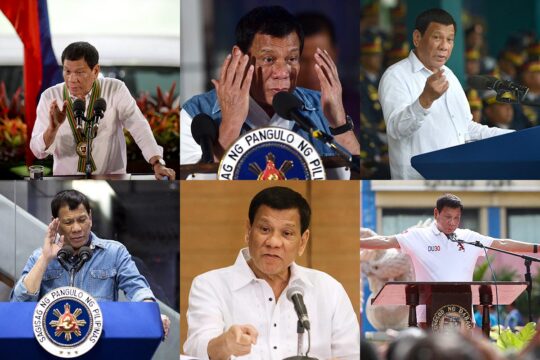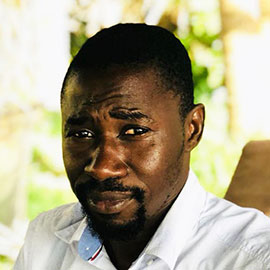With truth commissions what comes to mind is voluntary testimony. Witnesses may appear to tell their stories and the rest of the world will take their word for it until the investigation uncovers anything to the contrary.
Well, before Gambia’s Truth, Reconciliation and Reparation Commission (TRRC) it is not a choice to appear or not if the Commission needs you and it is not a choice to lie either. Since its start on January 7, 2019, three people have learned the cost of lying before the 11 commissioners and its sometimes combative lead counsel Essa Faal.
Gambia’s Truth Commission is the most followed program on television, radio and online in the country. Testimonies are not just keenly followed by people. Witnesses who appear to be lying or sound unconvincing are subject of continued bullying online.
A Gambian human rights activist and country representative for Westminster Foundation Madi Jobarteh told JusticeInfo.Net that encouraging people to be truthful before the Commission is crucial to its success. “In principle I believe that if one lies to the TRRC, he or she must be held liable because the very rationale of the TRRC is truth telling and we must not allow individuals to face the Commission only to pour lies. Then what is the value of the commission?” he said. Authorities now find themselves under pressure as people would call for some witnesses’ arrest.
My nickname is “The Assassin”
First it was John Charles Mendy. The former soldier was recounted by several witnesses to have been involved in the execution of several soldiers on November 11, 1994. However, Mendy flatly denied involvement in two executions, admitted only one, and denied involvement in eight tortures, admitting only one. Following his public appearance before the TRRC, the Ministry of Justice requested his arrest and he was charged with murder.
Lamin Senghore is another soldier who was named in many incidents. An officer with the country’s antinarcotic agency, he appeared before the Commission on April 8. As a junior soldier in 1994 he was involved in the military takeover that brought Yahya Jammeh to power in July that year. He was also among the forty soldiers who were mobilized by the coup leaders to attack Fajara and Yundum Barracks on November 11, 1994. That day close to two dozen soldiers accused of planning a counter-coup were captured and executed at various locations. Though Senghore was among the attackers who overran the two military encampments, he claimed he just returned to the State House with some soldiers thereafter. However, according to the evidence before the Commission, said lead counsel Faal, Senghore was among those who returned to Yundum to execute the captured soldiers.
“You want to see no evil, hear no evil and do no evil, isn’t that the case? You are trying to extricate yourself from any responsibility,” Faal said, questioning the witness’s truthfulness.
As Senghore told his story, it seemed to only get better. He claimed he won his nickname in the army – “The Assassin” – because he is a “fast learner”, and that he was subsequently recruited as a “Jungler”. Jungler is the unofficial name of a paramilitary hit squad that reportedly operated on the orders of former President Jammeh to kill and torture his enemies, perceived or real. Yet Senghore a.k.a “The Assassin” saw no evil, did no evil, not even slapping anyone.
From the Commission to social platforms to the police
He also served as an agent of the National Intelligence Agency (NIA). The NIA was synonymous with fear in Gambia under Jammeh. There are numerous reports of people being put to torture in its premises. Senghore served the NIA but he tortured no one, no one was tortured in his presence nor did he witness anyone participating in any killing.
Then he was moved to the National Drug Law Enforcement Agency, an institution he admitted was also torturing people. He nevertheless remained completely innocent of any wrong doing.
At this point, the small conference hall where the Commission holds its sessions went cold. Slowly the voice of Faal and Senghore were disappearing into the foot stamp noise of an exhausted audience of about 30 people. Senghore sat starring at Faal with his bloodshot eyes, not blinking. And as his testimony was drawing to an end, so was Faal’s patience.
“I just remind you that you have lied all through your testimony and you are warned that lying before the Commission has consequences. You have a chance to rectify this testimony. My opinion is that you are not being truthful,” said Faal. Senghore adjusted himself in his sitting position et looked at Faal as the session ended.
Following his testimony, as for John Mendy, social platforms went wild with people calling him out for being untruthful. And barely two hours after his testimony, Senghore was called to the Kairaba Police Station and charged with perjury.
Suspensions or dismissals?
Then came the turn of Lamin Colley, a witness of the November 11 killing who admitted earlier on before the Commission that he had killed Sgt Fafa Nyang but claimed it was an accident. Several witnesses said Colley deliberately shot and killed Nyang but he claimed he was trying to help him when his AK-47 rifle accidently fired a shot putting a bullet in his left jaw, shattering Nyang’s skull.
Last week, nearly three weeks after his testimony, Colley was given his dismissal letter from the army. The spokesperson of the Gambian army Major Lamin Sanyang told JusticeInfo.Net that the recommendation for Colley’s sacking came from the Justice Ministry. But the measure was effected by the army through its commander in chief, President Adama Barrow, who is also the Defense Minister. (The Justice Ministry has also recommended the termination of employment of Mendy from Gambia’s Civil Aviation Authority where he works as a chief security.)
“By keeping perpetrators in office we do not only undermine the reconciliation process but we also put a challenge in the process of system change. Perpetrators will always seek to cover their violations and this will not help us move forward. By their presence in office they would generate displeasure around which will also affect staff morale,” said human rights activist Jobarteh. However he thinks dismissals are a bit too early and would suggest suspension instead. “I think serving civil and security personnel who confess to torture should be interdicted pending the end of the TRRC and the submission of its report so as to determine the fate of those individuals,” he said.
REMEMBERING A STUDENT MASSACRE
It has been nineteen years since soldiers opened fire on Gambian students who were peacefully protesting to demand justice for their colleague allegedly killed by agents of Gambia’s Fire and Rescue Service. Ebrima Barry was allegedly beaten to death by fire service officers in Brikama, one of Gambia’s biggest towns about 1 hour from Banjul. On April 10-11, 2000, 14 of the protesting students were gunned down while dozens were left with injuries, some life-threatening.
Testimonies at a demonstration in memory of the victims of 10 and 11 April 2000
The Gambian authorities began an inquiry into the incident but refused to release the report. They also brought a parliamentary act indemnifying all the soldiers involved.
Today victims still live with their scars while some struggle with health complications.
On April 10, activists and victims asked the Government to release the report of the state investigation into the incident and to repeal the indemnity act. They are also asking the authorities to investigate and prosecute soldiers who shot and killed students as well as the person who ordered the use of live ammunition on innocent protesters. They are further are calling on the Government to assist those with health complications.







